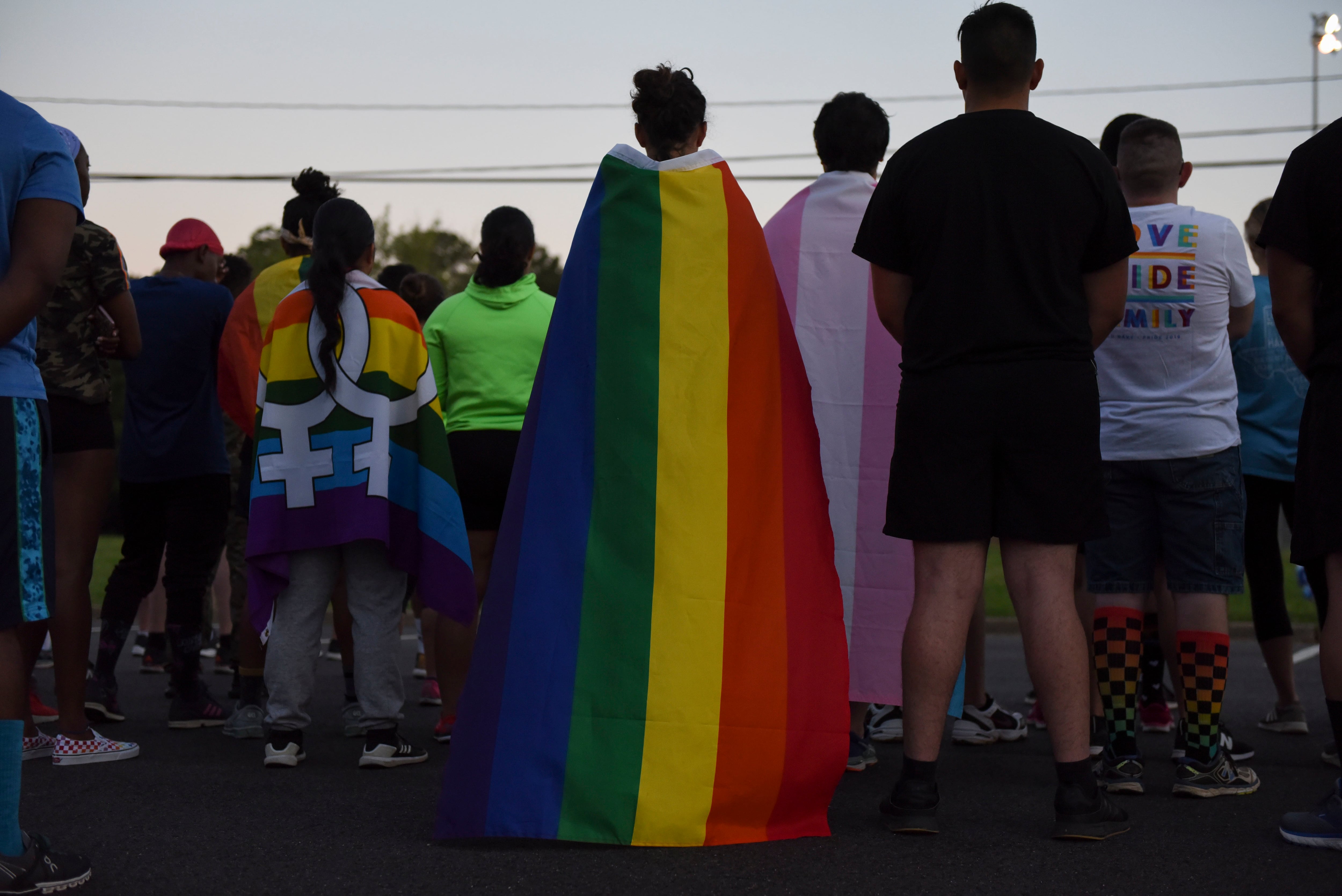Editor’s note: This story has been updated with comment from LGBTQ+ veterans at 630pm EDT.
The Pentagon unveiled new efforts Wednesday to reevaluate discharges of thousands of LGBTQ+ veterans who were forced out of service because of their sexuality under the military’s “Don’t Ask, Don’t Tell” policy.
Department officials will soon begin a “proactive review” of LGBTQ+ veterans who were handed less than honorable discharges because of their sexual preference, and possibly look to upgrade their discharge status.
The initiative arrives on the 12-year anniversary of the repeal of “Don’t Ask, Don’t Tell.” The policy, enacted in 1994, prohibited LGBTQ+ service members from disclosing or openly embracing their sexual orientation while in uniform.
The Pentagon estimates that thousands of LGBTQ+ troops received less than honorable discharges for “homosexual conduct” during the policy’s lifetime. Advocates believe that at least 35,000 service members were released from duty because of their sexual orientation between 1980 and 2011.
A less than honorable discharge can spell poor job prospects after military service and limit access to a range of veterans benefits, including loans, healthcare, and funerary expenses.
A group of veterans impacted by “Don’t Ask, Don’t Tell” sued the Defense Department in early August to upgrade their discharges and strike any mention of their sexuality from their military records — designations they claim violate their privacy. One of the plaintiffs for, Marine Corps veteran Julianne ‘Jules’ Sohn, was one of thousands to be involuntarily discharged under the DADT policy.
“Over 29,000 of those veterans did not receive an honorable discharge and should have their discharges upgraded,” Sohn wrote in Military Times of why they are bringing the case. “Fewer than 1,500 eligible veterans have been able to upgrade their discharges.”
While Sohn’s group, “Justice for LGBTQ+ Veterans” welcomed Wednesday’s announcement, they declined to say if they’d drop their complaint.
“While we appreciate DOD’s statement, much work lies ahead,” they wrote in a statement to Military Times. “Until every veteran discharged under ‘Don’t Ask Don’t Tell’ and its predecessor policies receives the long-delayed justice they deserve, we remain committed to advocating for the rights and dignity of LGBTQ veterans who have been affected by this historical injustice.”
Veterans can apply to have their discharge status reviewed, but Sohn’s attorneys have described the process as “burdensome, opaque, expensive, and, for many veterans, virtually inaccessible.”
Pentagon leaders hope the new review process will cut some of that red tape.
“Over the past decade, we’ve tried to make it easier for service members discharged based on their sexual orientation to obtain corrective relief,” Secretary of Defense Lloyd Austin said in a statement. “While this process can be difficult to navigate, we are working to make it more accessible and efficient.”
U.S. defense officials speaking at a press conference Wednesday morning did not specify when the “proactive review” would begin. They also noted that many evaluations could drag on, citing the large caseload and ambiguity surrounding some dismissals.
Officials added that the discharge review will not include the nearly 20,000 LGBTQ+ veterans expelled from the military before the implementation of “Don’t Ask, Don’t Tell.”
Jaime Moore-Carrillo is an editorial fellow for Military Times and Defense News. A Boston native, Jaime graduated with degrees in international affairs, history, and Arabic from Georgetown University, where he served as a senior editor for the school's student-run paper, The Hoya.





